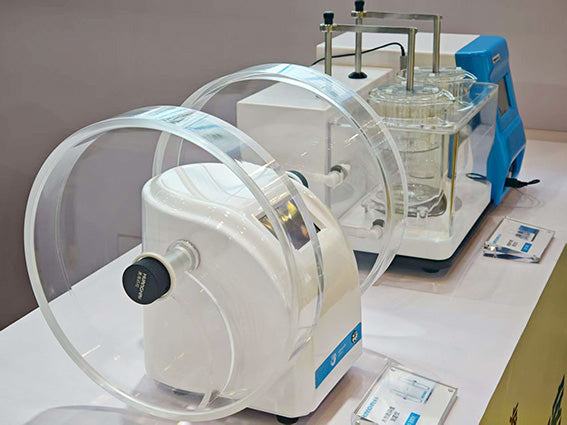
The Role of Hardness Testing in Quality Control
Share
Introduction
In solid dosage production, quality control is more than just a compliance box — it’s a vital gatekeeper for patient safety and therapeutic effectiveness. From packaging and transportation to storage, tablets and nutraceuticals must maintain mechanical integrity. This makes hardness testing a critical step in the quality assurance process.
1. Why Hardness Testing Matters
- Dose Consistency: Tablets that are too hard or too brittle can compromise active ingredient delivery and absorption.
- Pharmacopeia Compliance: USP, EP, and the Chinese Pharmacopeia all include strict requirements for tablet hardness.
- Stability During Distribution: Inadequate hardness can lead to breakage during transportation, resulting in returns and quality risks.
2. Common Quality Risks
- Under-Hardening: Tablets may break during filling or shipping, affecting appearance and dosage control.
- Over-Hardening: Leads to poor disintegration and delayed therapeutic effect.
- Insufficient Testing Frequency: Hardness testing is often limited to R&D, neglecting batch-level inspection during production.
3. Industry Trends
- Integrated QA Testing: Hardness testing is being combined with friability, thickness, and weight tests to streamline labs.
- High-Sensitivity Sensors: Suitable for new dosage forms like mini-tablets and fast-melts.
- Automation and Digital Records: Reduce manual errors and improve repeatability across batches.
4. HUANGHAI’s Solution
- Multiple models of tablet hardness/friability testers available — from lab-scale R&D to full-scale manufacturing.
- High-precision pressure sensors ensure results meet Chinese Pharmacopeia and international pharmacopeia standards.
- Sturdy, easy-to-clean design meets GMP inspection and documentation requirements.
👉 Recommended Equipment:
Tablet Hardness / Friability Testers Collection
Conclusion
Tablet hardness testing is not just a requirement for regulatory audits — it’s your front-line defense against quality drift and market risk. By investing in high-performance testing instruments, companies can significantly improve compliance, reduce waste, and enhance product reputation in global markets.
